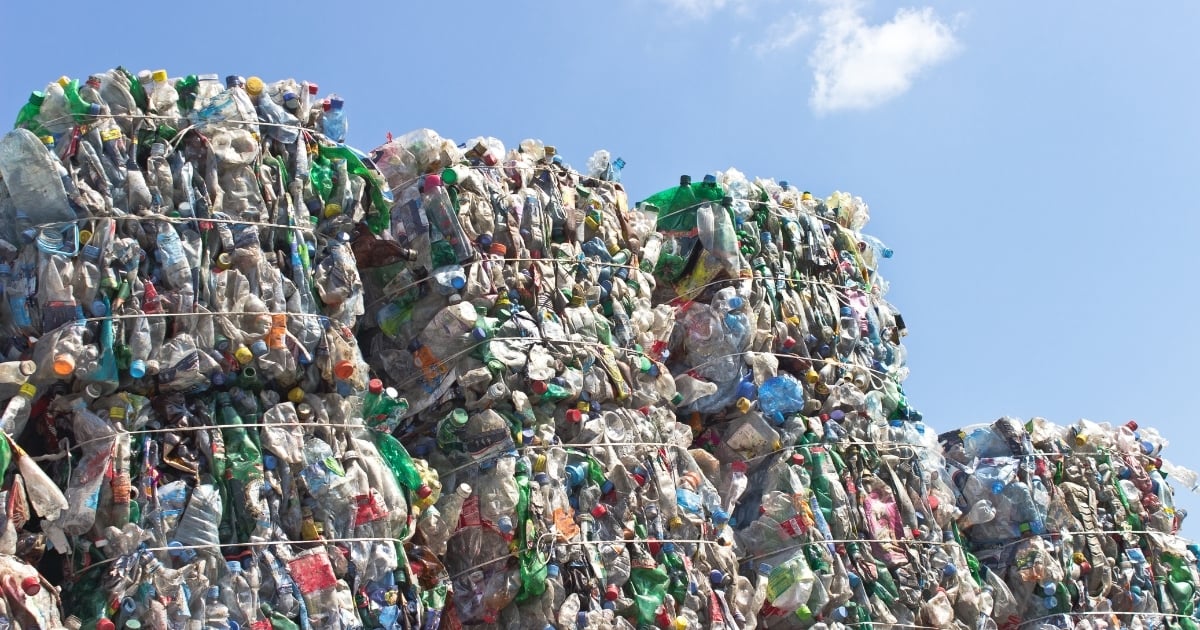Oregon Approves Nation's First Packaging EPR Program Plan under the Plastic Pollution and Recycling Modernization Act (RMA)
Oregon has officially approved the first Extended Producer Responsibility (EPR) Program Plan in the U.S. for packaging, printing and writing paper, and food serviceware. The plan is a major milestone under the state’s Plastic Pollution and Recycling Modernization Act, a law designed to modernize recycling and reduce plastic waste.
EPR laws shift responsibility for managing the full lifecycle of products from governments and consumers to the producers who make and sell them. Producer Responsibility Organizations (PROs), like the Circular Action Alliance (CAA), help coordinate compliance by managing the collection, recycling, and reporting obligations on behalf of producers. With more states considering similar legislation, Oregon is setting a precedent for modernizing recycling systems nationwide.
What is the Plastic Pollution and Recycling Modernization Act (RMA)?
Oregon’s Plastic Pollution and Recycling Modernization Act (RMA) aims to overhaul the state’s recycling system by introducing a more efficient and equitable framework. It establishes new standards for recycling services, introduces a shared responsibility model between producers and local governments, and ensures that recycling programs are accessible, consistent, and environmentally effective.
The RMA aims to:
- Standardize the list of materials accepted in recycling programs statewide to improve consistency and reduce confusion.
- Provide financial and logistical support to local governments for recycling program operations through producer contributions.
- Expand recycling access for multifamily housing and underserved communities with targeted equity goals.
- Establish environmental and performance standards for material recovery facilities to ensure responsible recycling practices.
- Develop statewide education and outreach initiatives to reduce contamination and improve public recycling practices.
- Oversee program implementation through DEQ monitoring, plan approvals, and regular compliance reporting.
- Convene a stakeholder advisory council to support program transparency and guide continuous improvement.
Timeline of key requirements
The RMA, passed during Oregon’s 2021 legislative session as Senate Bill 582, officially took effect on January 1, 2022. The law outlines a phased approach to reforming the state’s recycling system, with major program changes scheduled to begin in July 2025. The timeline for reporting is as follows:
- By July 1, 2024: Producers must begin registering with the Oregon Department of Environmental Quality (DEQ).
- By July 1, 2025: Producer Responsibility Organizations (PROs) must begin implementing approved program plans, and reporting requirements for producers and PROs commence.
- Beginning in 2026: PROs must submit annual reports to DEQ detailing program performance, including progress toward goals such as material recovery, accessibility, and education.
Obligated producers under the RMA
Obligated producers under the RMA are entities that offer for sale, sell, or distribute covered products in Oregon. Covered products include:
- Packaging materials
- Printing and writing paper
- Food serviceware intended for single or limited use
Producers subject to the law include brand owners, manufacturers, and marketers that directly sell to Oregon consumers, as well as those that import covered products into the state. Small producers and specific product types may be excluded based on thresholds defined in the law. To comply, producers must either:
- Join a Producer Responsibility Organization (PRO).
- Submit and operate their own approved program plan to meet obligation requirements.
Oregon’s EPR Milestone Begins with CAA
The Oregon Department of Environmental Quality’s (DEQ) approval of the CAA’s EPR plan marks a milestone in U.S. recycling policy. As the first PRO in the nation to receive such approval, CAA will lead the implementation of Oregon’s RMA.
The RMA establishes a shared responsibility model: local governments manage collection and education, while CAA coordinates producer funding to support material processing, transportation, and system improvements. Developed in close partnership with DEQ and statewide stakeholders, the plan balances regulatory compliance with tangible system enhancements.
CAA has launched its producer portal, finalized guidance, and established reporting protocols—positioning Oregon for a successful program launch on July 1, 2025.
Key components of the plan include:
- Equitable recycling access for underserved communities, including rural and non-English speaking populations
- Infrastructure upgrades to improve efficiency and recovery rates
- Statewide education campaigns on recycling and waste reduction
- Collaboration across producers, municipalities, and recyclers to align sustainability efforts
This first-of-its-kind initiative offers a replicable model for other states, reinforcing the role of PROs in advancing circular economy goals nationwide.
Simplifying EPR compliance using Source Intelligence
As Oregon pioneers the implementation of the Plastic Pollution and Recycling Modernization Act, producers face increasingly complex EPR requirements. To support companies operating across multiple jurisdictions, Source Intelligence delivers a robust, software-driven EPR compliance solution designed to minimize complexity and streamline regulatory operations.
Backed by a team of regulatory experts, our software ensures your compliance program is equipped to handle evolving legislative deadlines and requirements. As more states follow Oregon’s lead, Source Intelligence empowers businesses to proactively manage producer responsibility efficiently. Explore our solution to learn more.
About the author
Source Intelligence
![]()
Source Intelligence is the leading provider of supply chain compliance software for sustainability and ESG programs. Built for mid-market and enterprise manufacturers, its configurable SaaS platform centralizes supply chain data and automates regulatory workflows as requirements scale. From product compliance and responsible sourcing to Extended Producer Responsibility (EPR) and component obsolescence, Source Intelligence helps global teams reduce risk, improve visibility, and meet evolving obligations with confidence.



